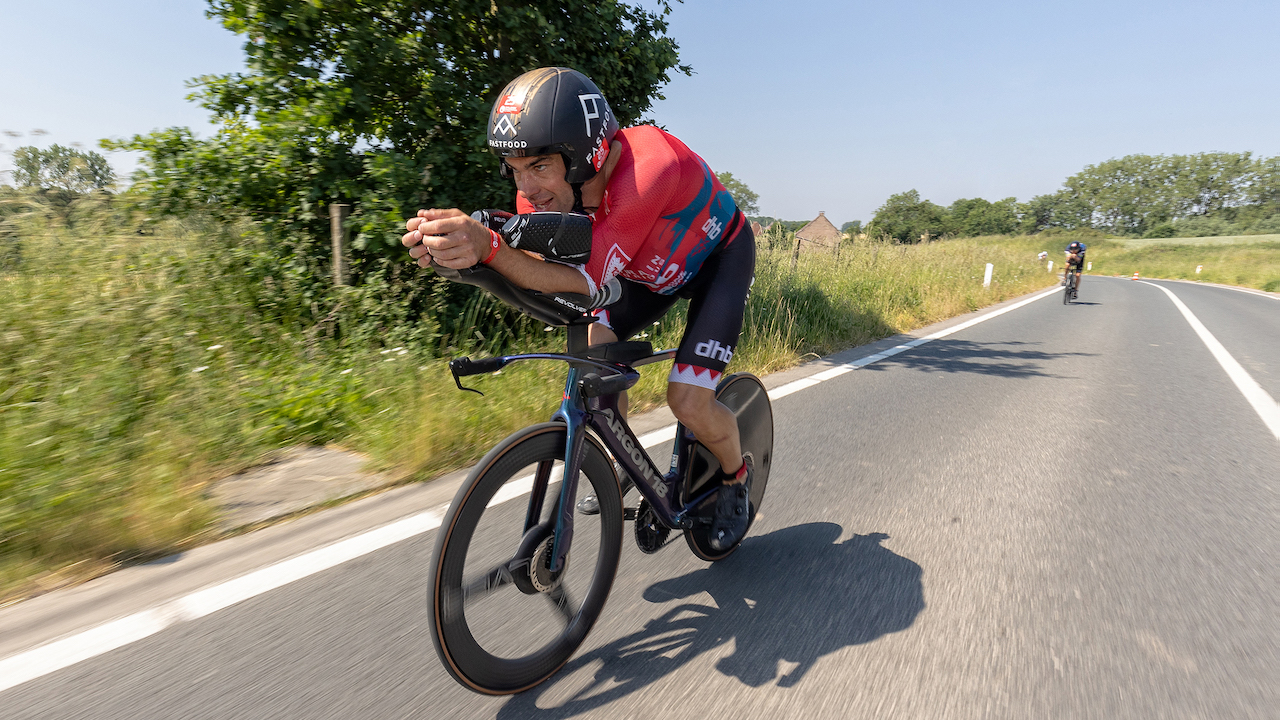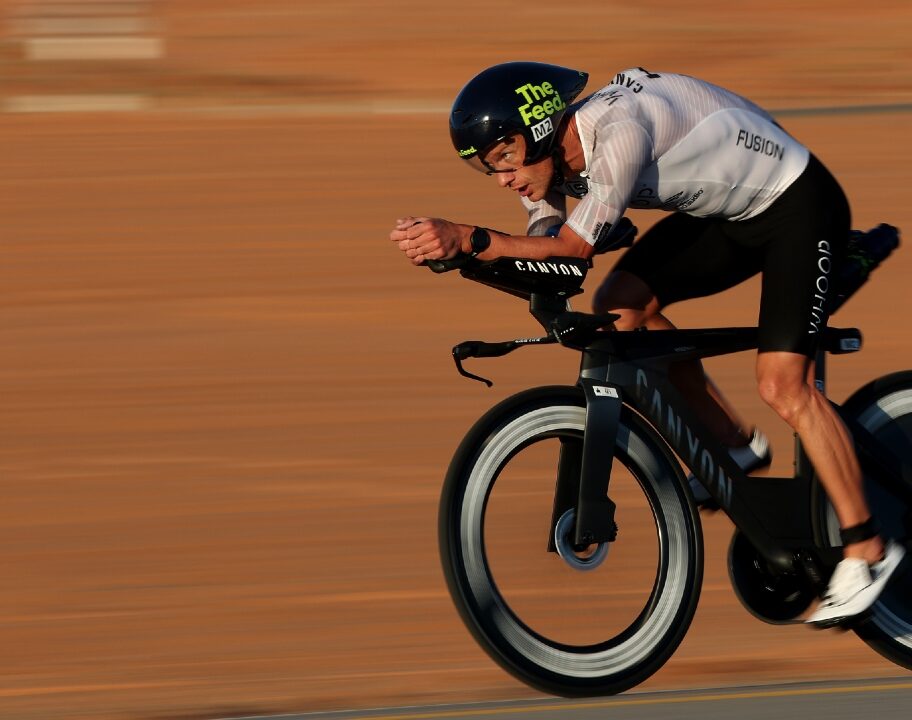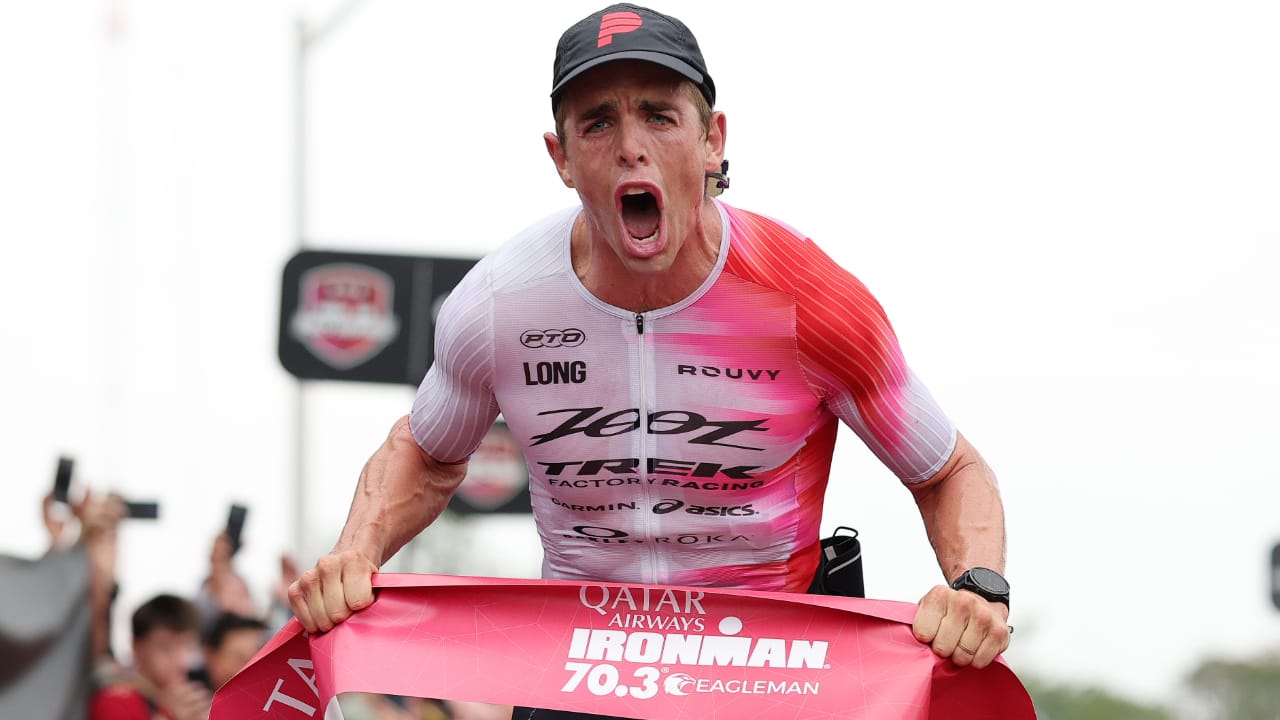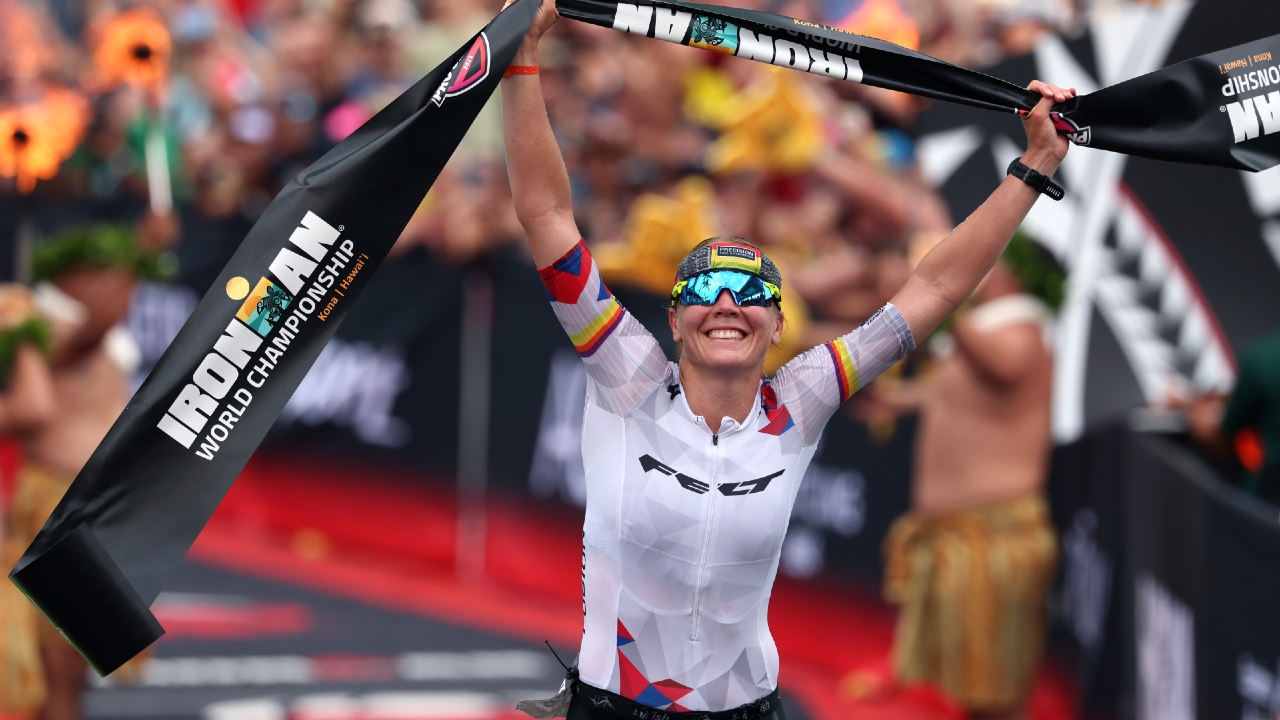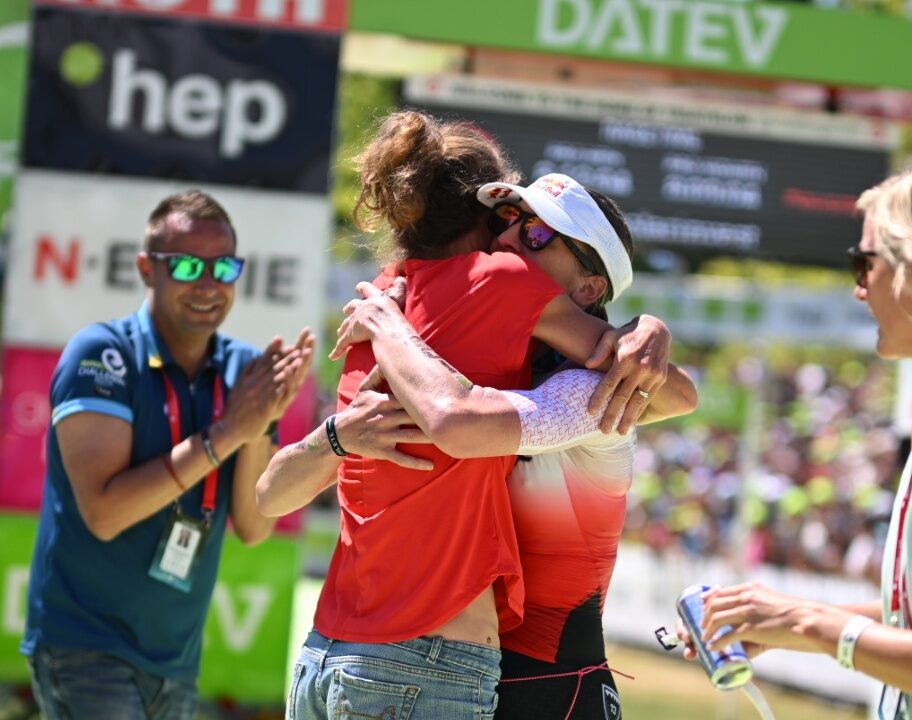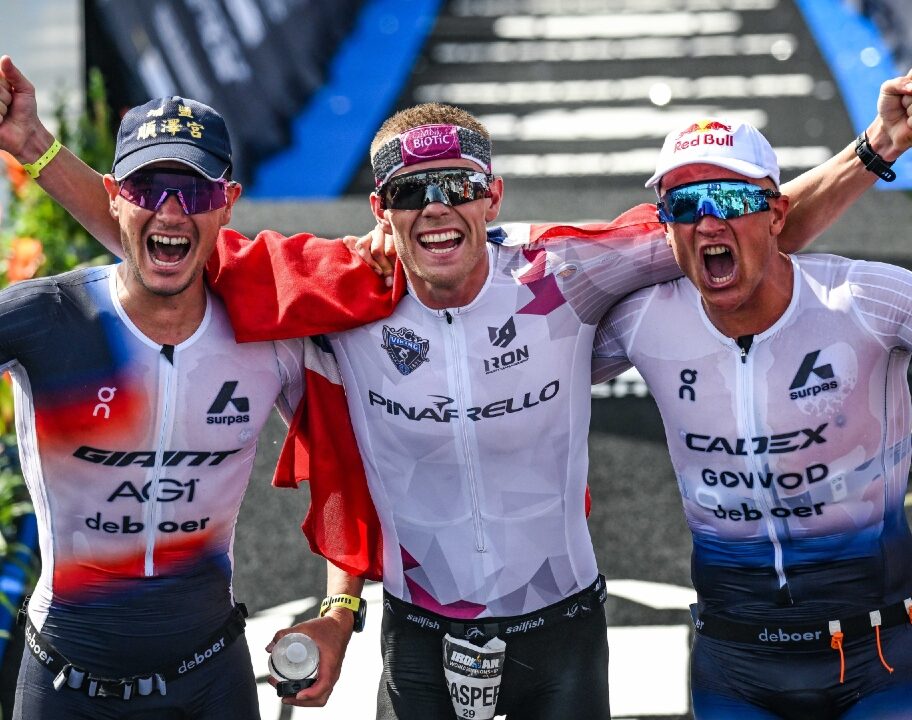Sam Laidlow and Joe Skipper, two of the most vocal advocates for fair racing in men’s long-distance triathlon, have praised the fact that RaceRanger anti-drafting data was made public after Challenge Roth – but say more now needs to be done.
Both raced at Roth – Laidlow sensationally returning to action with a brilliant win, while Skipper was 14th.
RaceRanger is an electronic distance measurement system for triathlon racing that detects illegal drafting and documents violations objectively.
And the idea of publishing the data was suggested by none other than Laidlow at the pre-race athlete briefing for Challenge Roth.
That was acted on by Race Director Felix Walchshöfer after a unanimous vote and the data was then released a couple of weeks later for both the men’s and women’s races.
More to be done
TRI247 recently caught up with Laidlow when he followed that Roth success with an all-the-way solo win at the first-ever IRONMAN Leeds in Yorkshire.
And the Frenchman told us: “I think what attracted me to full-distance, and what attracts a lot of people compared to short course, is that it’s a very honest race. You have to be strong in all three disciplines.
“But the 12-metre rule means that at Kona there can be just one big pack and if you want to ride away from that pack, you have to push some silly numbers.
“So I hope that we can keep pushing for fair racing. I just think it’s more exciting for the spectators as well because you’re better seeing everyone’s honest level rather than just one pack come off the bike and run together.”
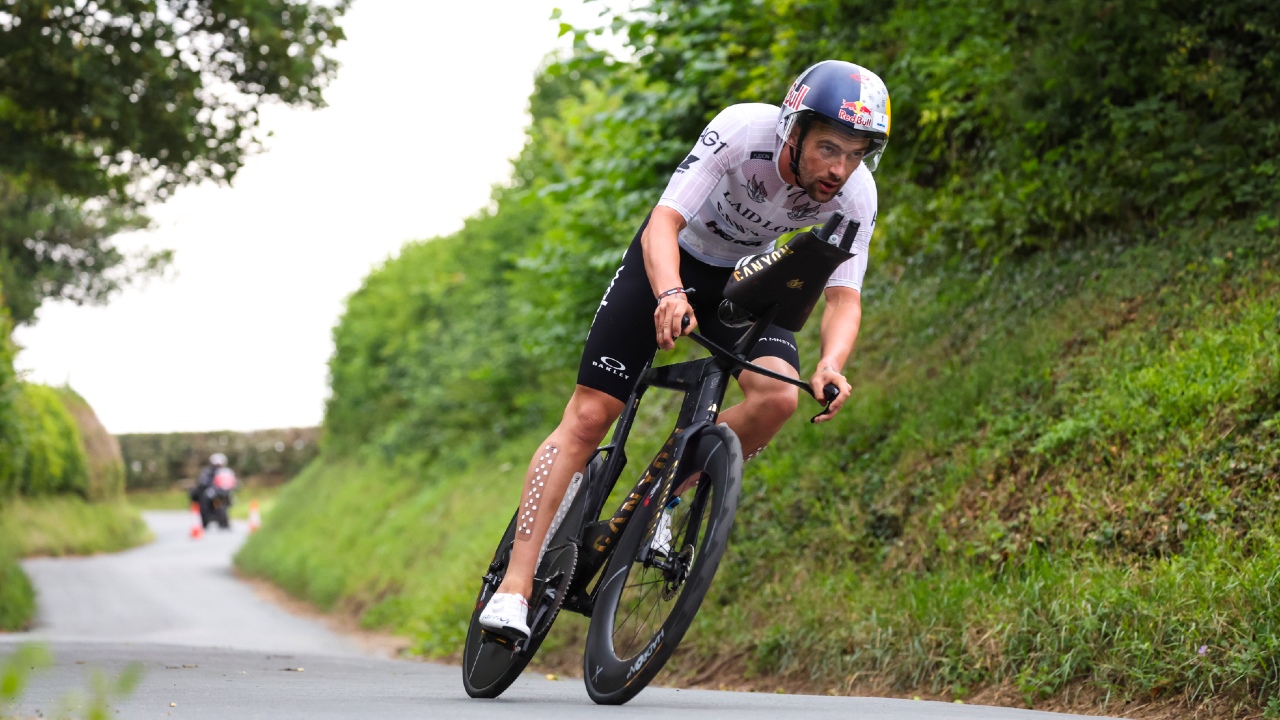
‘Motorbikes the biggest problem’
And multiple-IRONMAN winner Skipper has thrown what he feels is another key aspect into the equation.
Speaking on his Instagram page, the Brit said: “I think it was great to see @challengeroth release the @race.ranger data but I think we need to see the impact motor bikes are having on races around the world.
“I’ve picked my races this year primarily on which races will have the least motorbikes and don’t want it to be a deciding factor anymore.”
Explaining more, he added: “Motorbikes are problematic in triathlon because they create a huge drafting pull.
“People think the biggest problem in pro racing is the drafting of other athletes – and with RaceRanger, they’ve looked into that.
“I personally think the ideal thing would be to put something on motorbikes in races so we can see the data of how much time athletes spend within, say, 30 metres of motos and then actually use that data, to compile a whole load of research.
“A motorbike is a lot bigger than a bike, especially when you’ve got two people on the back. So all of a sudden you could have 400 kilos going through the air, which is just moving so much air out of the way compared to an athlete on the bike.
“So having motos near a lead group, if you’ve got three, four of them, can be a huge advantage to a group that they’re around.
“So it’s very problematic. It creates a massive pull, it moves a lot of air out the way, which makes the group go faster.
“It is definitely the biggest issue in triathlon I would say. And that’s what we need to be spending a lot of time looking at. I think the actual drafting of athletes in races is a very small problem.”
